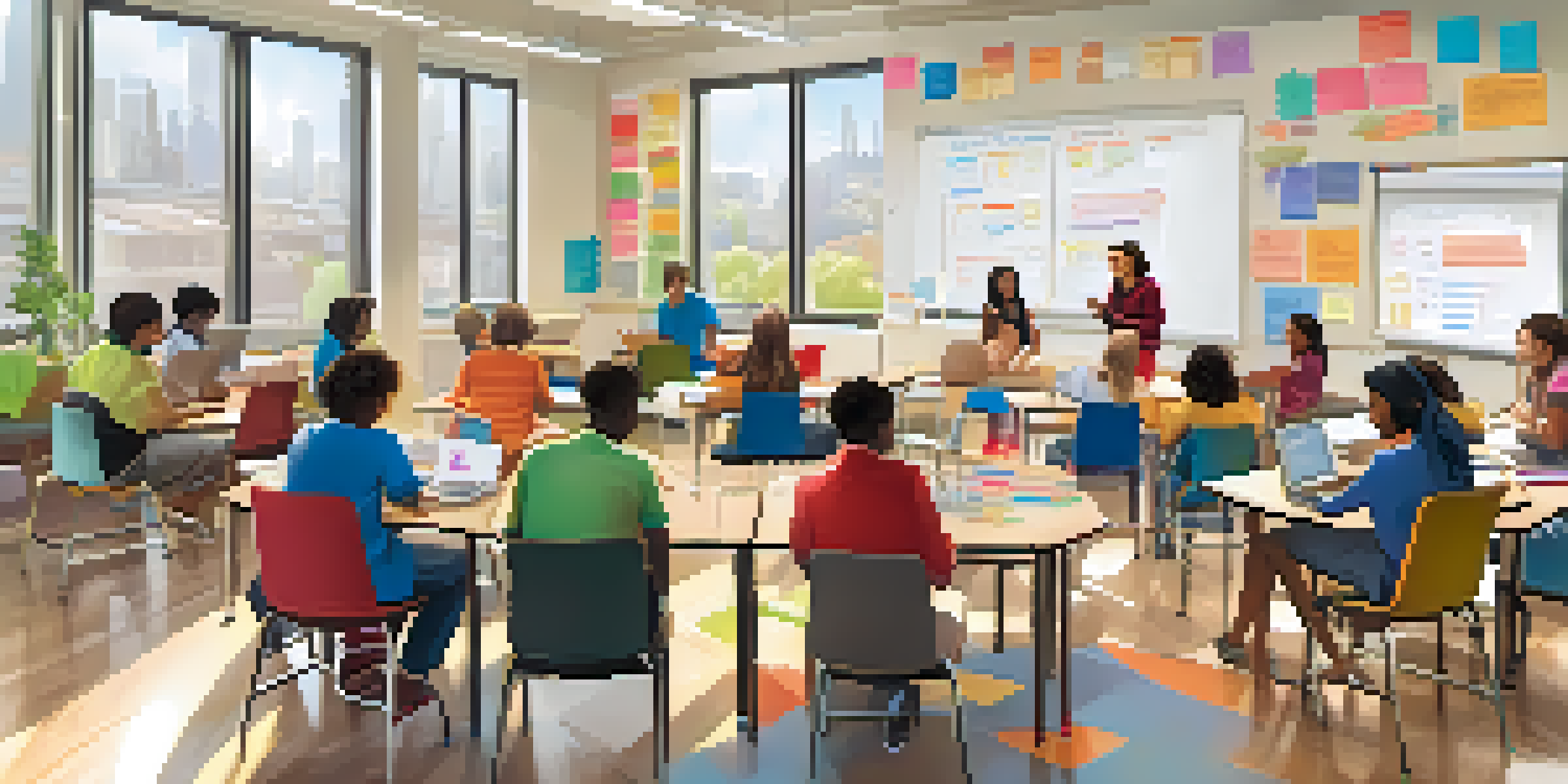Using Online Quizzes in Flipped Classroom Environments

Understanding the Flipped Classroom Model
The flipped classroom model reverses traditional learning by assigning instructional content for homework, while class time is spent on interactive activities. This approach empowers students to learn at their own pace, allowing for more personalized education. By engaging with materials outside the classroom, students come prepared with questions and insights, ready to dive deeper during in-person sessions.
The Role of Online Quizzes in Learning
Online quizzes serve as a powerful tool to reinforce learning and assess understanding. They provide immediate feedback, helping students identify areas they need to focus on before coming to class. This not only boosts retention but also encourages accountability, as students take ownership of their learning journey.
Flipped Classroom Enhances Learning
The flipped classroom model allows students to learn at their own pace, fostering a more personalized educational experience.
Creating Engaging Online Quizzes
When designing quizzes, it's crucial to make them engaging and relevant to the students’ learning objectives. Incorporating multimedia elements like videos or images can enhance the quiz experience and cater to different learning styles. Additionally, varying question types—such as multiple-choice, true/false, or short answer—can keep students on their toes and maintain their interest.
Integrating Quizzes into the Flipped Classroom
To effectively integrate online quizzes, educators should align them with pre-class materials. Quizzes can serve as a gauge for students' understanding of the content, guiding what topics may need more focus during class. By discussing quiz results in class, teachers can foster a collaborative atmosphere where students learn from each other’s perspectives.
Quizzes Reinforce Learning Effectively
Online quizzes provide immediate feedback and enhance student accountability, helping them identify areas for improvement.
Benefits of Online Quizzes for Students
Online quizzes provide several benefits, including flexibility and convenience. Students can complete quizzes at their own pace and revisit questions as needed, reinforcing their knowledge. Moreover, the gamified aspects of quizzes, such as leaderboards and instant results, can create a fun and competitive environment that motivates students.
Challenges of Using Quizzes in This Model
While online quizzes are beneficial, they also come with challenges. Technical issues, such as platform failures or internet connectivity problems, can disrupt the learning process. Additionally, some students may struggle with test anxiety, making it essential for educators to create a supportive environment that encourages growth rather than fear of failure.
Flipped Classroom Enhances Learning
This model allows students to learn at their own pace, engaging more deeply during interactive class sessions.
Analyzing Quiz Results for Improvement
Analyzing quiz results can provide invaluable insights into student performance and comprehension. Educators can identify common misconceptions or knowledge gaps, allowing them to tailor their teaching strategies accordingly. This data-driven approach not only enhances the teaching process but also helps students understand their learning trajectories.
Future Trends in Online Quizzes and Education
As technology continues to evolve, online quizzes will likely become even more integrated into the educational process. Innovations such as artificial intelligence can personalize quiz experiences, adapting questions based on individual student performance. Additionally, the growth of mobile learning platforms will ensure that quizzes remain accessible, catering to an ever-changing educational landscape.
Online Quizzes Boost Accountability
They provide immediate feedback, helping students identify and focus on areas needing improvement before class.